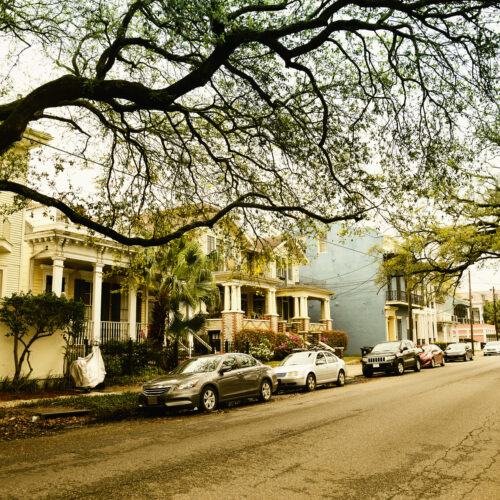Indigent defense progress stunted by outdated funding mechanism in Louisiana

Pleading the Sixth: The chairman of the Louisiana Public Defender Board (LPDB) warns that the state’s reliance on unpredictable revenue streams to fund the right to counsel makes public defense service restrictions “inevitable” in the coming months. A new report on the dire financial situation of New Orleans’ public defender office serves to underscore this point.
In the August/September 2012 issue of the Louisiana State Bar Journal, the Chairman of the Louisiana Public Defender Board (LPDB), Frank Neuner, warns that the state’s reliance on unpredictable revenue streams to fund the right to counsel will force public defenders in more than a third of the state to implement service restrictions, and turn back cases in the coming months if change is not imminent. Marking the fifth anniversary of the Louisiana Public Defender Act of 2007, Neuner writes that despite “incredible accomplishments,” the right to counsel system in Louisiana “remains on a precipice – financially insolvent, with practitioners daily risking their ethical responsibility, wholly beholden to the judiciary and the sheriff for funding, and outmatched in virtually every resource by their prosecutorial counterparts.” Warning that public defense service interruptions will “risk public safety” and “delay the administration of justice,” Neuner called on the Louisiana State Bar Association to exert leadership in securing “stable, sufficient funding for the public defense function.”
Louisiana’s indigent defense funding scheme
As aptly noted in his call to action, Neuner defines the public defense funding crisis as being two-fold: “[t]here’s not enough money, and the majority of it is generated the wrong way.”
Louisiana stands alone in the nation as the only state indigent defense system that relies primarily on locally generated, non-government general fund appropriations to fund the right to counsel. Specifically, though the Louisiana Public Defender Act of 2007 created an independent statewide commission with regulatory authority to set and enforce binding standards on local delivery systems and also established a Louisiana Public Defender Fund for state monies that have more than quadrupled from the start of reform to today (from $7.5 million in 2006 to $33 million in 2012), the majority of funding for trial-level services comes from a combination of fines and fees (e.g., bail bond revenue, criminal bond fess, revenue form forfeitures, and indigency screening fees, among others). The single greatest revenue generator for indigent defense in Louisiana is a special court cost (historically, $35) that is “assessed to every criminal defendant who is convicted after trial, pleads guilty or no contest, or who forfeits his or her bond for violation of a state statute or a parish or municipal ordinance other than a parking ticket.” In short, the majority of funding for trial-level representation (66%) in Louisiana comes from fees assessed on traffic tickets.
As one can imagine, a number of factors can dramatically impact the number of traffic tickets that can be written, assessed and collected in any local jurisdiction. As noted in the Neuner article, “Hurricanes Katrina and Rita produced a vivid exposé of the weaknesses” of the public defense funding scheme. As law enforcement officials were appropriately focusing their efforts on public safety in the aftermath of the storms, the writing of traffic tickets was not a high priority in the flooded streets of New Orleans (Katrina) and southwestern (Rita) Louisiana. The plummeting revenue did not, of course, correlate in any way with the actual need for indigent defense representation – as more and more people charged with crime found themselves without the means to hire private counsel.
And, it does not take a natural disaster to negatively impact right to counsel funding under such a funding scheme. In State v. Peart, 621 So.2d 780 (1993) — a case in which the Louisiana Supreme Court found a systemic presumption that indigent defendants do not receive sufficiently effective representation due primarily to the “unstable and unpredictable” funding mechanism — the court noted that “when the city of East Baton Rouge ran out of pre-printed traffic tickets in the first half of 1990, the indigent defender program’s sole source of income was suspended while more tickets were being printed.”
Even advancing technologies, like reliance on photo-enhanced traffic tickets (e.g., camera-generated tickets for running red lights) that can free up law enforcement personnel to more strategically focus limited resources on more pressing criminal justice matters, can have the unintended effect of decreasing indigent defense revenue. Reliance on such technologies under state law deprives most district public defender systems of the “revenue they would have received through traditional traffic ticketing.” As Neuner explains, “[t]hese districts live month-to-month, without the ability to absorb unexpected costs, whether they come in the form of a natural disaster, a complex case, an unforeseen technology expense or a drop-off from last year’s received revenues.”
Moreover, LPDB cannot maximize whatever resources are generated locally in the most efficient way. LPDB is statutorily prohibited from pooling these local revenue streams, augmenting them with state funds, and disseminating back to where resources are most needed in the state. Instead, all locally generated revenue stays in local in judicial district indigent defense funds — whether or not those funds are needed in that district. Because of this, some districts have reserve funds sitting in local bank accounts that are not needed, while others [approximately a third of all districts (or, 14 of 42 judicial districts)] will have to resort to refusing appointments to stay solvent.
A Closer Look a New Orleans
On August 7, 2012, LPDB released a report they commissioned in the wake of a budget crisis that forced the Orleans Public Defender (OPD) to refuse cases in January of this year. Report on the Evaluation of the Office of the Orleans Public Defenders, by former Kentucky Public Advocate, Ernie Lewis, and current chief public defender of the Louisville-Jefferson County Public Defender Corporation (Louisville, Kentucky), Dan Goyette, highlights how the state’s “flawed funding scheme” gets further compounded in a jurisdiction, like New Orleans, where the locally generated revenue becomes a political football.
For example, a May 2012 audit report established that in a five year period (2007-2011) the New Orleans Traffic Court failed to pay between $2.4 and $6.7 million statutorily owed to OPD. There are really two aspects of this story that impact indigent defense representation in New Orleans. The first is the systemic deficiencies in the collection mechanisms themselves. As noted in an LPDB May 2012 press release, the auditors found that:
[b]ecause Traffic Court performs no reconciliation of pre-numbered tickets, there is no way to verify that the reviewed tickets are the total number of tickets received; Traffic Court uses two accounting systems to record transactions, making it difficult to meaningfully evaluate financial statements; Traffic Court regularly converts traffic tickets into contempt charges, or suspends certain charges while adding others, thereby bypassing the obligation to collect funds for any other agency except its own Judicial Expense Fund; and, Traffic Court remits fees to its judicial expense fund before any other agency.
Worse, a May 14, 2012 article in The Times-Picayunereported that the district’s chief judge “acknowledged that sometimes the judges keep the money for the court’s operational fund. ‘To the extent it was done, in rare instances, it was for the sole purpose of keeping the court’s operations going,’ he said.” Thus, the first part of the failed funding equation is that the Orleans Public Defender never knows how to plan for the unpredictability of whatever revenue might be coming from traffic tickets.
On top of this, the Lewis-Goyette report appropriately notes that:
[m]ost governmental budgeting involves a process wherein an agency makes a showing to a budgeting committee with accompanying data that supports the budget request. That committee asks questions, the committee’s staff analyzes the underlying data and suggests appropriate action on the request, and the committee then makes a decision. The decision is then recommended to the legislative body, which determines the level at which the governmental entity will be funded.
However, this is not how it works in New Orleans. New Orleans is one of only two jurisdictions in Louisiana that receives money from local units of government (OPD receives some money from the City of New Orleans) separate from and in addition to the locally generated fees from traffic tickets. However, OPD operates on a July 1 to June 30 fiscal year (in coordination with LPDB) while the City of New Orleans operates on a calendar fiscal year. As the Lewis-Goyette report indicates, “[w]hen OPD begins its fiscal year at a particular spending level, they do not know whether the City will provide anticipated funding and meet budget revenue projections. If they spend too much in the first half of the year before knowing what the City will be contributing, the second half of the fiscal year requires significant cuts.” Or, as stated in the Lewis-Goyette report, OPD is “told to ask the State for funding in July, told to ask the City for funding in January, and told to ask judges for funding throughout the year” – a “budgeting nightmare” and a procedure “rife with pitfalls and uncertainty.”
This all came to a head in January 2012. According to the Lewis-Goyette report, OPD budgeted $9.5 million expecting $9.3 million in revenue. However, “the City of New Orleans did not contribute the $2.6 million expected (instead contributing only $879,948), traffic court revenue was $500,000 short of the expected amount, and Municipal Court was $125,000 less than anticipated.” The Orleans Public Defender began January 2012 needing to “cut approximately $2 million from its spending, resulting in layoffs, salary reductions, increases in employee contribution to health care, and service reductions including the demise of the conflict program.”
Conclusion
In the 2012 legislative session, a bill was offered to raise the $35 criminal conviction fee to $55 per convicted defendant. However, according to Neuner, “after opposition from the Louisiana District Attorneys’ Association, the Sheriffs’ Association and Mayors’ Courts, HB 325 was amended to a $10 increase.” Though helpful, it is not enough to close the current funding gap. More importantly, it does not address the crux of the problem, namely that a steady funding source is needed whereby LPDB can accurately budget the projected needs of each district based on anticipated workloads.


